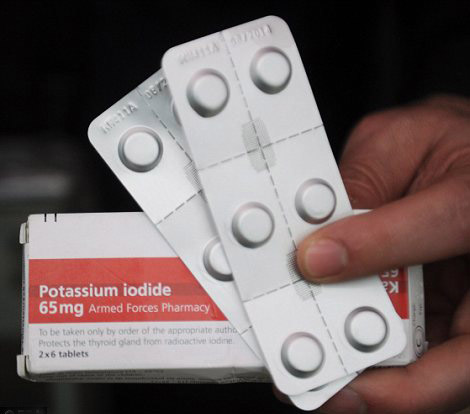US citizens fear radiation, iodine pills sold out
Some drugstores in California are running out of potassium iodide, which prevents some of radioactive iodine's harm to the thyroid, according to a CNN report on Friday.
 |
|
Potassium iodide [Photo: China.com] |
Californians worry about the harmful radiation drifting from Japan, however, US officials said they should change their focus on preparing for earthquakes and other emergencies common in their own state.
According to the report, Dr. Howard Backer, interim director of the US Department of Public Health, said radiation from the tsunami-damaged Fukushima Daiichi nuclear power plant in Japan will dissipate over the more than 5,000 miles separating it from the California, but eventually it may be detected in small, non-harmful amounts.
State health officials don't know how many people are preventatively taking potassium iodide, but they strongly discourage taking the medicine. It carries its own side effects, especially for people who have allergies to iodine, shellfish or who have thyroid problems, the report said.
A China Daily report said Friday that Washington's actions indicated a divide with the Japanese about the perilousness of the situation.
The US State Department recommended that the citizens within 50 miles (80 km) of the plant leave the area or stay indoors.
Japan's government has asked people living within 12 miles (20 km) to evacuate and those between 12 miles and 18 miles (30 km) to stay indoors.
The reports in the U.S. on use of nuclear energy were also conflicting.
The Obama administration has maintained its support for expanding US use of nuclear energy despite renewed fears about its safety after the events in Japan. But Secretary of State Hillary Clinton said on Wednesday the crisis raised questions about the use of nuclear energy in the U.S.
Japan's National Police Agency said Friday that the catastrophic March 11 earthquake and ensuing tsunami have left 6,405 people dead and 10,259 others unaccounted for in Japan by 9:00 a.m. (0000 GMT).
China Daily, Agencies contributed to the story.
 0
0 






